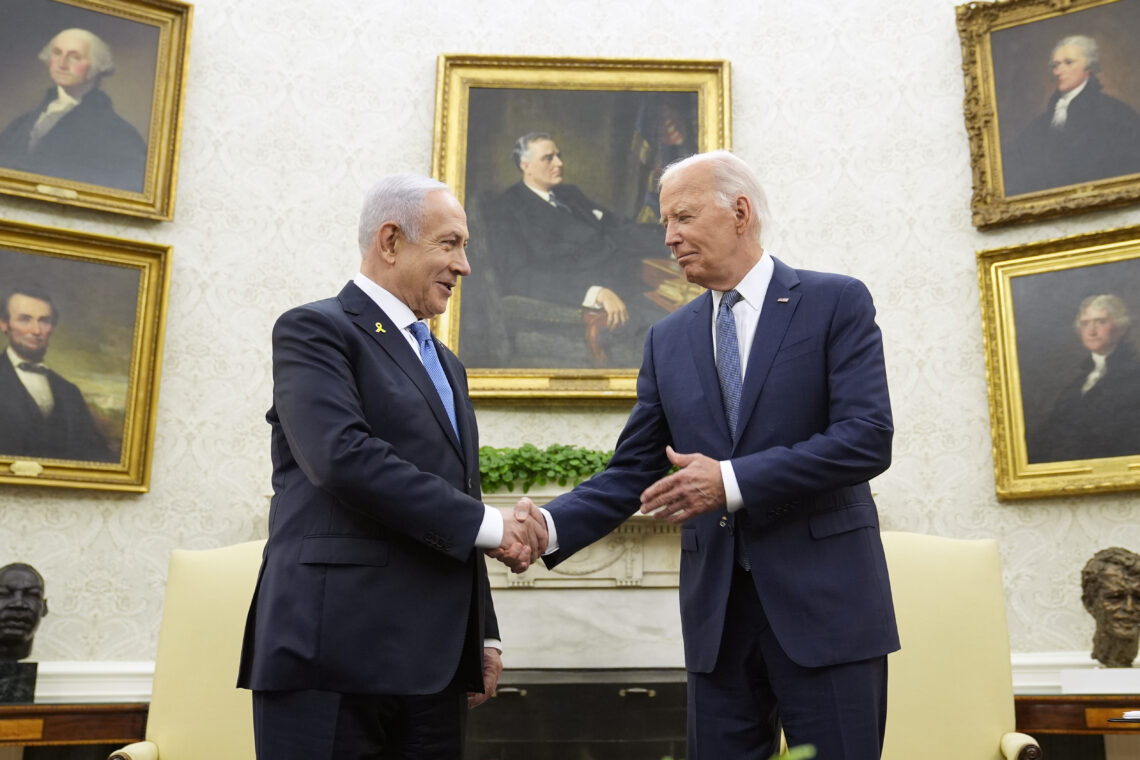While Israel prepares a retaliatory strike against Iran, the Biden administration is looking more and more like bystanders.
The US government seems to have limited insight into what its closest ally in the Middle East is planning and less influence over its decisions, writes the Wall Street Journal.
The White House appears to be coordinating closely with Israel to try to limit the attack on Iran, which is expected shortly. Among other things, Biden has said that the US does not authorise attacks on Iranian nuclear facilities.
On Wednesday, Biden opened up the possibility that the US would support the targeting of Iran’s oil infrastructure, but probably wants to limit such attacks, which could have major consequences for oil prices and thus the global economy.
But Israel has yet to make a final decision on what its response will look like and the White House has been repeatedly sidelined by Israel’s decisions in recent weeks.
For example, Netanyahu ordered the attack that killed Hezbollah leader Hassan Nasrallah from a hotel room in New York at the same time the Biden administration was trying to avert an escalating war in the Middle East at the UN building a few blocks away.
Biden’s Secretary of State Antony Blinken, like our own, has been relentlessly pushing for a ceasefire and a two-state solution, and after 7 October, Israel has no particular interest in this.
Another example: In September, the White House sent Amos Hochstein to Tel Aviv to urge Israel not to launch a large-scale operation against Hezbollah in Lebanon. As we know, this was ignored by Netanyahu and his government.
The US was also not informed of Israel’s attack on the pagers and attempted to distance itself from the operation.
U.S. fails to rein in Israel
U.S. attempts to rein in Israel in Gaza have yielded only limited results, according to analysts. In Lebanon, Netanyahu has seemed even less restrained.
Now Biden and Harris are torn in both directions at home in the run-up to the election. Harris needs the Muslim vote, which means that the Biden-Harris regime will have to be tougher on Israel. But Harris is also dependent on the votes of Jews and other friends of Israel.
In many ways, it’s easier for Trump, who has obviously chosen a side. So Trump doesn’t have to walk a tightrope.
“7 October changed everything,” says David Schenker, who served as assistant secretary of state for Near Eastern affairs during the Trump administration.
We are dealing with a new Israel that will relentlessly pursue its security objectives with less regard for American sensibilities.
The situation at home
At the same time, dramatic things have also happened in American politics. Biden was pressurised into being replaced by Harris, and in a month’s time there will be an election. It’s hard to be strong in negotiations when it’s uncertain whether the power to implement your side of the bargain will remain.
In Biden’s case, it is absolutely certain that any influence he may have will be history in a few months.
When Israel began preparing for an invasion of Lebanon, the White House was quick to call for a limited operation. On Monday, Biden was asked if he was aware that Israel appeared to be ready to invade Lebanon.
“I’m comfortable with them stopping,” Biden said.
But Israeli special forces were already inside Lebanon, and a few hours later began a “limited” ground invasion that Israel now appears to be expanding.


